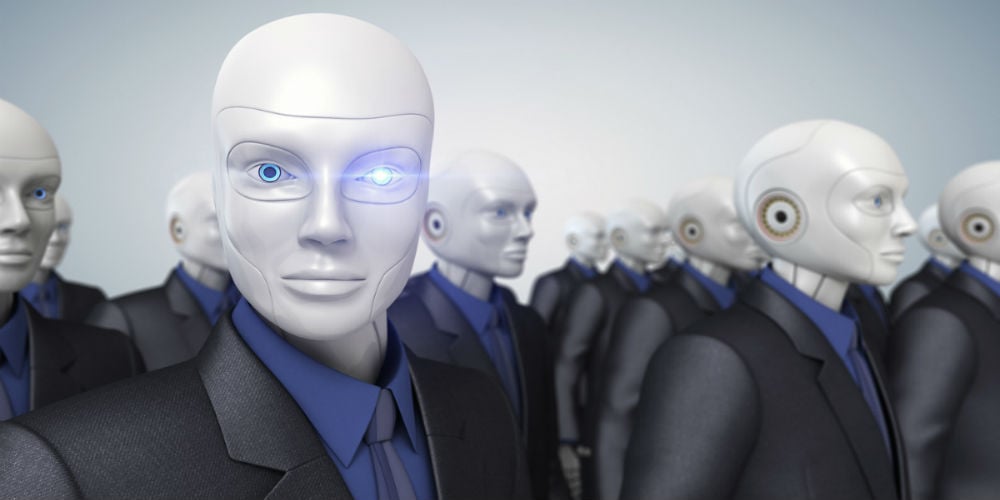Leading in a post apocalyptic world

Though some pundits say it may destroy all of humanity, artificial intelligence has the opportunity to revolutionize computing and even society. In movies such as 2001 a Space Odyssey and more recently, Transcendence, Hollywood depicts a doomsday scenario where a diabolical artificially intelligent super computer outthinks the entire human race. This, however, isn’t just Hollywood fiction. Futurists such as Ray Kurzweil predict that this “singularity” will happen by the year 2045 at the latest. Singularity states that “all change in the last million years will be surpassed by the change in the next five minutes”. This point in time becomes the tipping point where artificial intelligence surpasses human intelligence.
As Wired Magazine’s Kevin Kelly points out, once the singularity tipping point is reached, progress will happen exponentially as artificial intelligence continuously redesigns itself, and could virtually eliminate most, if not all, manual labor and even middle management jobs. Although most feel that artificial intelligence and advances in computing may not spell the end for humanity, it will unquestionably create new leadership challenges.
For years, the human workforce has been increasingly replaced by robots. From automated brick laying machines, to automobile assembly line automatons, humans are going the way of the Dodo bird. Enrique Dans, in his Forbes leadership column, cites Changying Precision Technology Company in China. Changying has replaced 90% of its 650 human employees with robots. The remaining line workers are responsible for the robotic maintenance, which will eventually be taken over by other robots, leaving a limited role for the remaining humans. Adding artificial intelligence to the robotic workforce will result in unimaginable increases in productivity, efficiency and safety. We need only look at the driverless car that will always choose the most efficient route while increasing traffic safety 10 fold. The recent unveiling of Google’s D-Wave Quantum Computer, a super computer that is 100 times faster than the fastest current computer, will usher in the next generation of artificial intelligence, enabling this revolution in robotic efficiency and safety.
This looming fourth industrial revolution, as it has been referred to, has already created leadership challenges that will only be exacerbated by the quantum computing and artificial intelligence boon. How do you lead a robotic workforce? What new leadership competencies will be needed that our current leaders don’t possess? With the ever increasingly rapid pace of change caused by quantum computing, how do we handle this ultimate change management challenge?
The key to handling any change, especially on a massive scale, is to stay ahead of it. If leaders don’t stay ahead of the technology it will crush them and their organizations in its path. Let me remind you, however, that this pace of change, powered by AI and quantum computing, will be like nothing we’ve seen before. With less humans to motivate and lead, strategy and vision become more important than ever, and a leader’s ability to create and lead strategy based on massive amounts of data and information will become the primary leadership competency. Leadership teams need to create short-term strategic plans, rather than long term plans, in order to continuously adjust their approach to the new environment. They need to keep abreast of the rapid changes and dynamically integrate them into their organizational strategy. This may necessitate the creation of additional C-suite positions such as a Chief Technological Strategy Officer. These positions, and others, will be aided by artificially intelligent quantum computers, where they will need to interpret and organize the massive amounts of data and information presented to them. As current leaders need to surround themselves with the brightest and the best people to advise them, future leaders will need to surround themselves with the brightest and best artificial intelligence to advise them. Of course some are doing this already, however as the artificial intelligence corporate arms race heats up and we approach singularity, it will become a matter of organizational survival.

